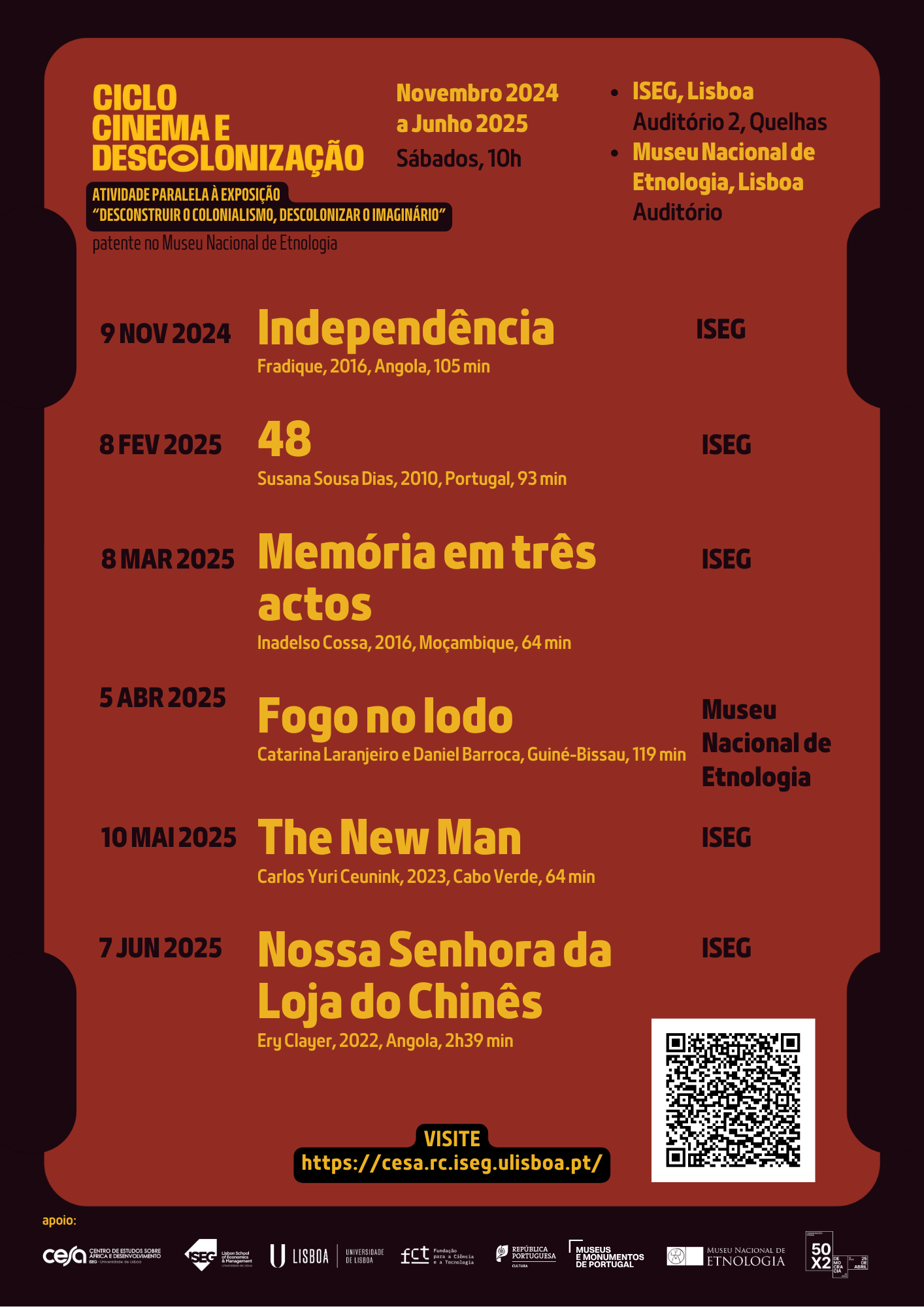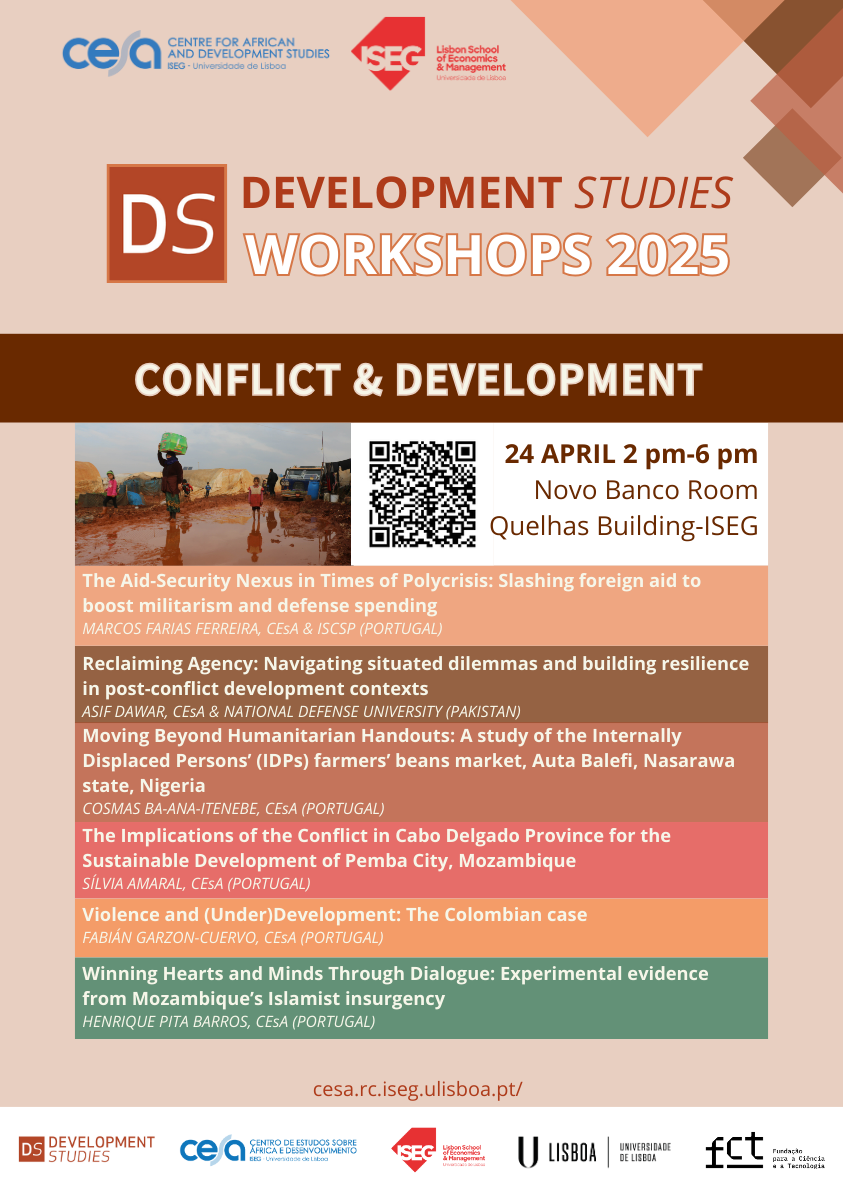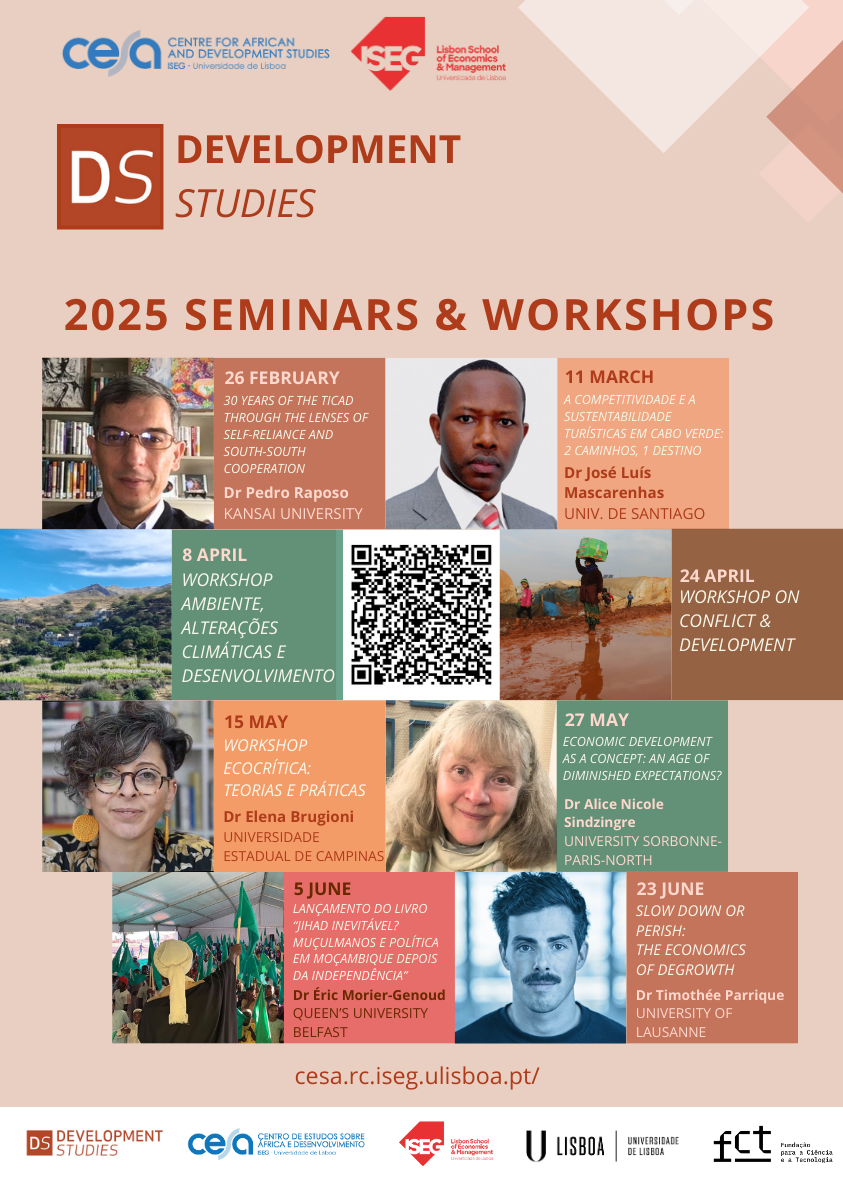CESA
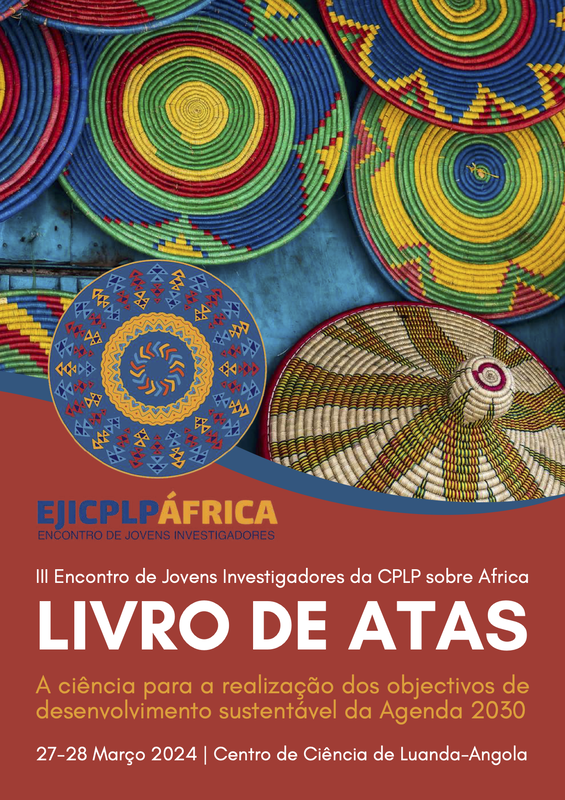
Ebook – 3rd EJICPLP Africa: A ciência para a realização dos Objectivos de Desenvolvimento Sustentável da Agenda 2030
Abstract:
It is with great pleasure that we present the outcomes of the 3rd Meeting of Young Researchers from the CPLP on Africa, held in Luanda on 27 and 28 March 2024. This event, which has already established itself as a key platform for science and development within the Community of Portuguese Language Countries (CPLP), brought together more than 700 participants around the theme “Science for the Achievement of the Sustainable Development Goals of the 2030 Agenda,” fostering a fertile environment for the exchange of ideas, reflections, and collaborations.
With around 30 speakers, including senior researchers, experts, and high-level national and international institutional representatives from various fields of study, eight thematic panels were discussed to deepen knowledge about Africa and its sustainable development, particularly in the areas of Tourism, Energy, Education, Economy, and African Women. The event addressed critical issues related to poverty eradication, environmental protection, and social prosperity. This edition highlighted the role of science in transforming African realities, reflecting on the implementation of the Sustainable Development Goals (SDGs) in the context of the Global South.
The importance of this Meeting goes beyond the impressive number of participants or the lively discussions that marked the two days of activities. The event is a unique scientific forum for young people across the CPLP and brings together a vibrant network of researchers in an itinerant and innovative format. It represents the collective effort of young researchers to give voice to issues that directly affect the development and future of their countries, reinforcing the scientific leadership of CPLP youth.
In this edition, 35 scientific papers by young researchers were presented, selected from among the 65 papers received through the Call for Papers, by a Scientific Committee composed of 30 professors from various universities in CPLP countries.
This book is more than a simple collection of articles; it represents the dedication of young researchers who strive to redefine the role of science in their societies. Through the discussions and analyses presented here, we hope not only to inspire new debates, but also to encourage concrete actions in support of inclusive and sustainable development in CPLP countries.
With the crucial support of the Centre for African and Development Studies (CEsA) and partner organisations such as Angola’s Ministry of Higher Education, Science, Technology and Innovation, and Felcos Umbria, this edition also demonstrates the value of collaboration and international partnerships essential to the success of this project.
We hope these pages offer an enriching perspective on the scientific contributions of Portuguese-speaking youth, as well as concrete actions towards inclusive and sustainable development, particularly in the PALOP countries.
We believe this book marks a milestone on the path towards a more open, collaborative, and transformative science.
Cite this e-book:
D’Abril, Cristina Molares e Jessica Falconi (2024). “III EJICPLP África: A ciência para a realização dos Objectivos de Desenvolvimento Sustentável da Agenda 2030”. ISBN: 978-989-54687-6-8
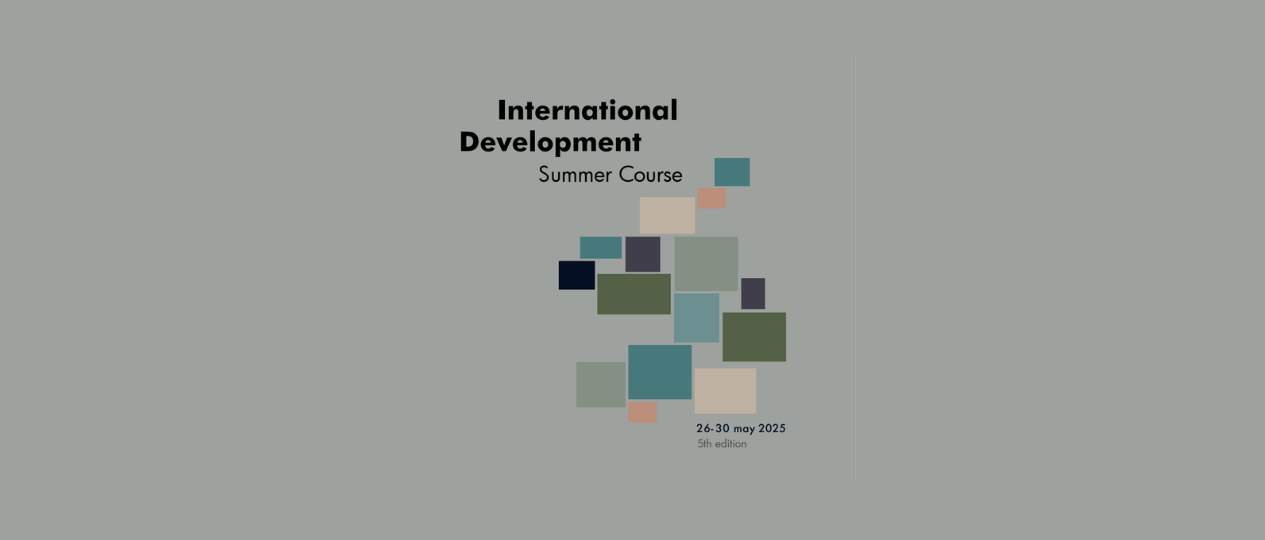
Registration now open! CEsA and Oficina Global join the 5th Edition of the International Development Summer Course
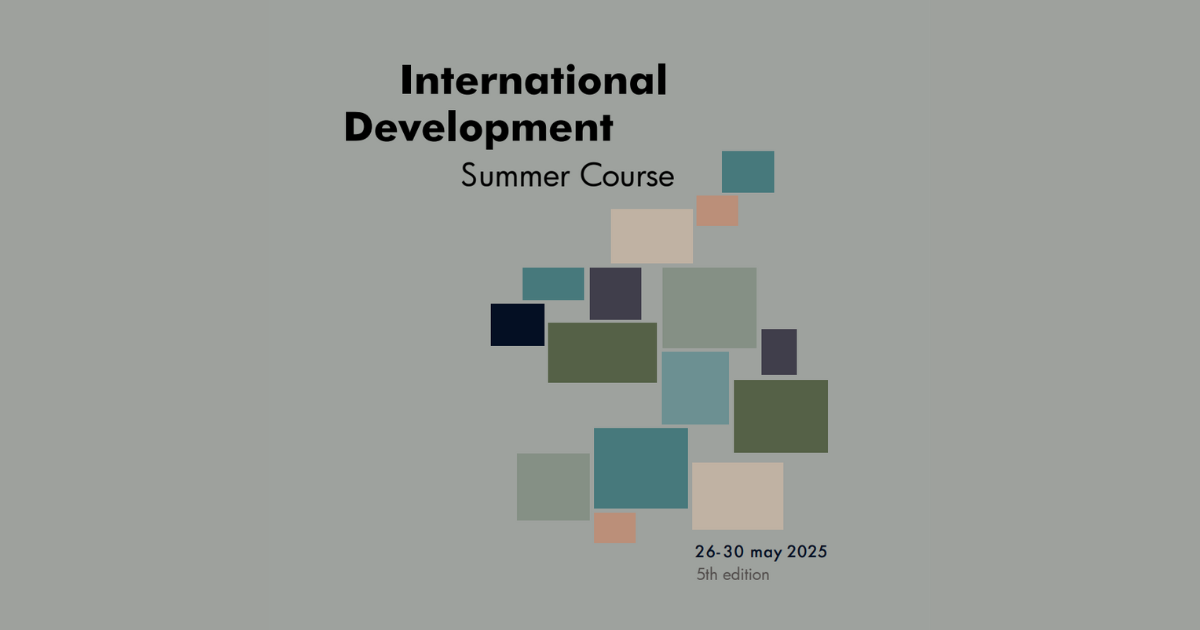
The CEsA – Centre for African and Development Studies (ISEG RESEARCH/ISEG/ULisboa) and Oficina Global are proud to be institutional partners of the 5th Edition of the International Development Summer Course, organised in partnership with Calouste Gulbenkian Foundation and Plataforma Portuguesa das ONGD. This edition will have as its theme “Cooperation in a Disrupted World: Who’s setting the rules?”, and will take place online over five mornings, from 26 to 30 May (11 a.m. to 1 pm UTC+1, Lisbon time). There will be simultaneous interpretation ENG-PT-ENG.
The preliminary programme can be acessed here. Registration must be done by filling out this form.
Read more:
International Development Summer Course – 5ª edição – Plataforma Portuguesa das ONGDs Website
Author: CEsA Communication (comunicacao@cesa.iseg.ulisboa.pt) with information from Plataforma Portuguesa das ONGDs
Image: Plataforma Portuguesa das ONGDs/Reproduction
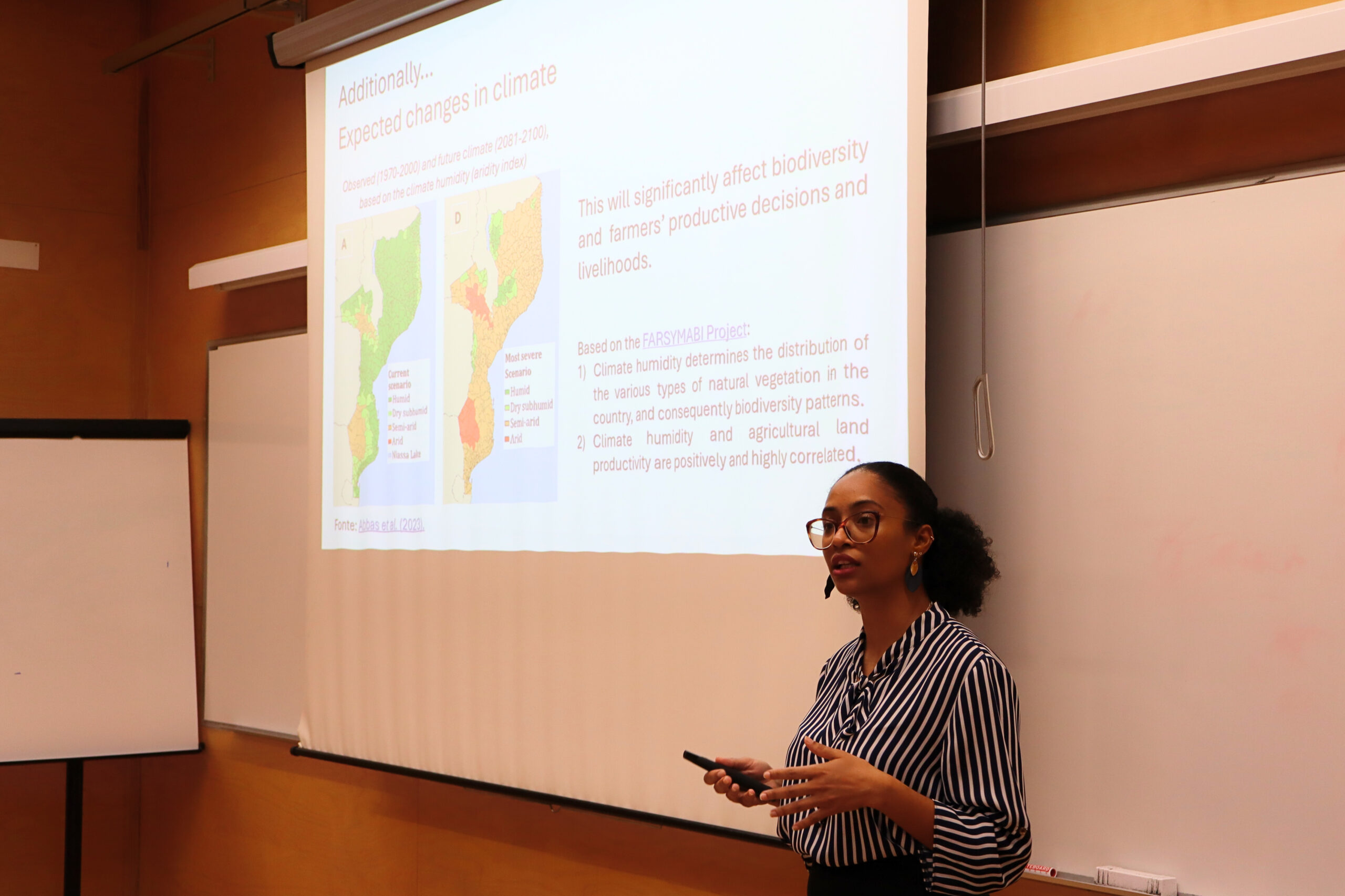
Recording of the DS Seminar “Biodiversity Conservation vs Local Development: Mainstreaming biodiversity into the agricultural sector in Mozambique” available on CEsA’s YouTube Channel
The Communication ‘Biodiversity Conservation vs Local Development: Mainstreaming biodiversity into the agricultural sector in Mozambique’ was presented by Dr Máriam Abbas (OMR, Mozambique, and Institute for Natural Resources Technology and Management, Germany) on 8 April 2025 under the Development Studies Workshop on Environment, Climate Change and Development. The session was recorded and is now available on CEsA’s YouTube channel.
This event was part of the Development Studies Seminars, an initiative that, since 1991, has been promoting research in the study areas of the Master’s in Development and International Cooperation (MDCI) at ISEG and the PhD Programme in Development Studies (PDED) at the University of Lisbon.
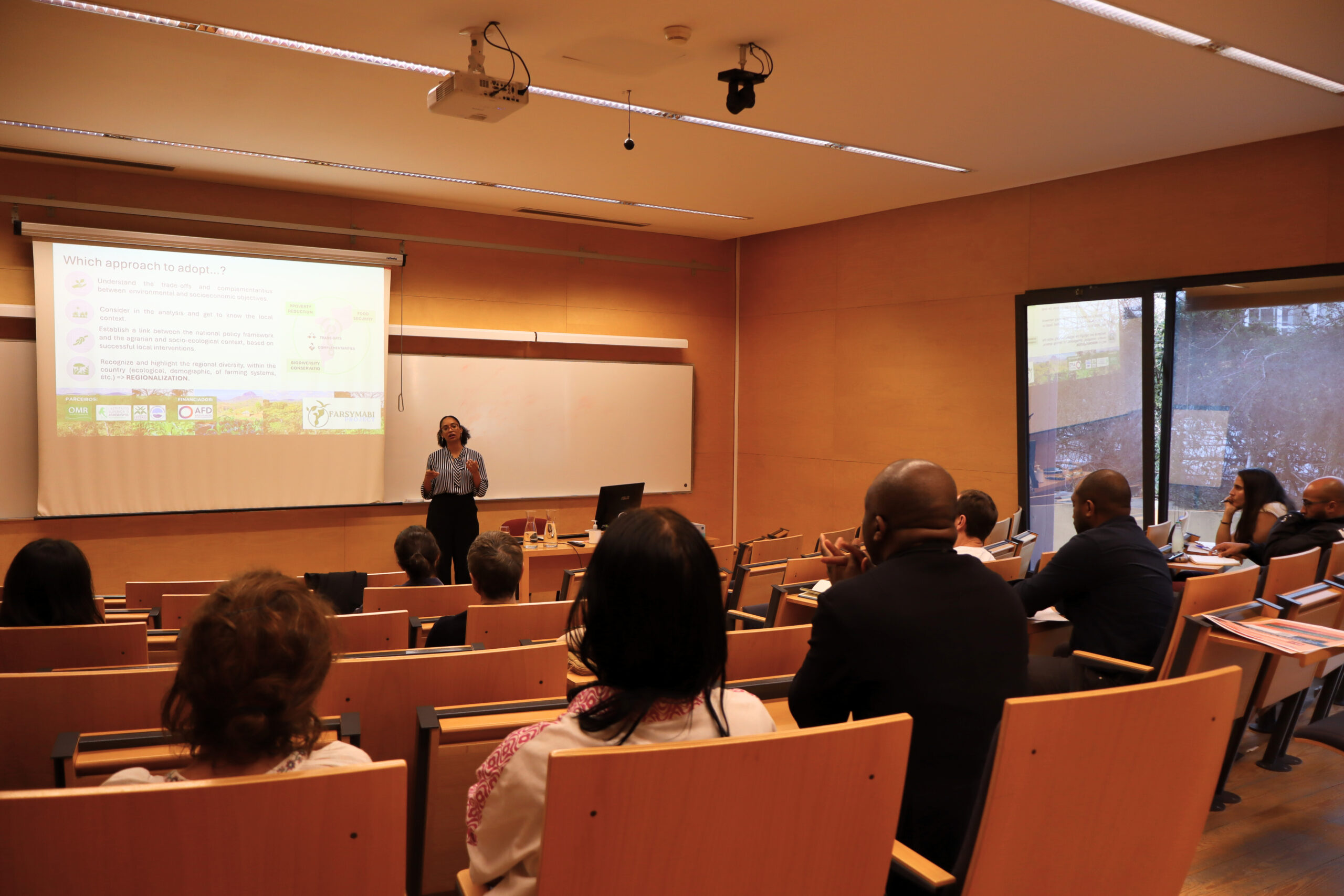

Watch the seminar recording below:
Read more
Development Studies Workshops 2025 | Ambiente, Alterações Climáticas e Desenvolvimento
Biodiversity Conservation vs Local Development: Mainstreaming biodiversity into the agricultural sector in Mozambique (Recording on YouTube)
Author: CEsA Communication (comunicacao@cesa.iseg.ulisboa.pt)
Images: CEsA/Reproduction
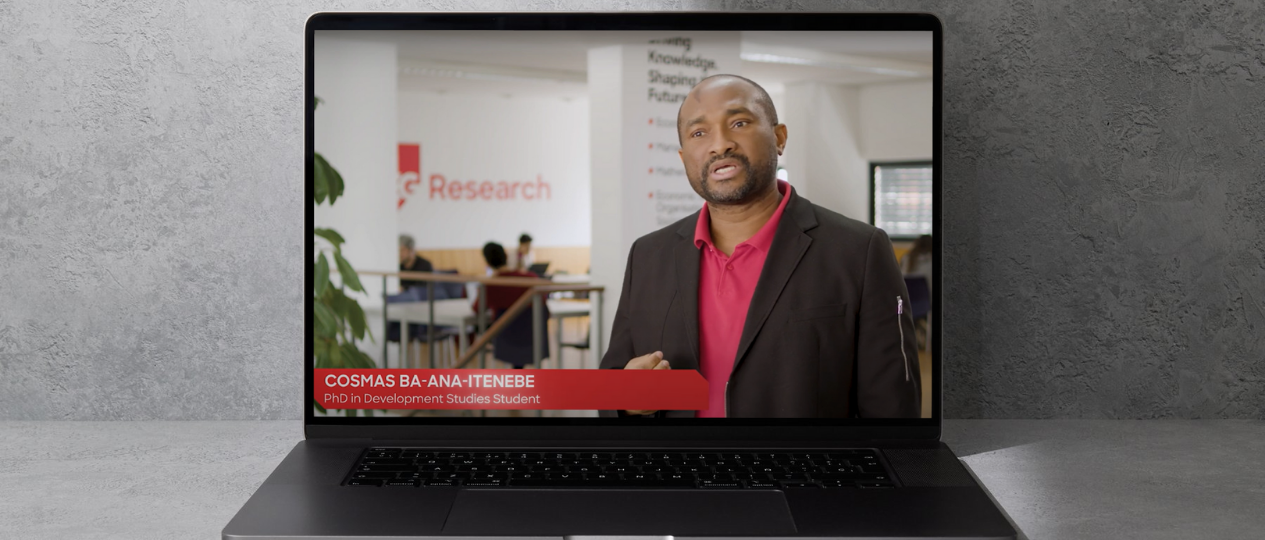
Discover the PhD in Development Studies
Discover the inter-university PhD programme in Development Studies, the result of a partnership between ISEG and other schools of the University of Lisbon — ICS (Institute of Social Sciences), IGOT (Institute of Geography and Spatial Planning), and ISA (School of Agriculture).
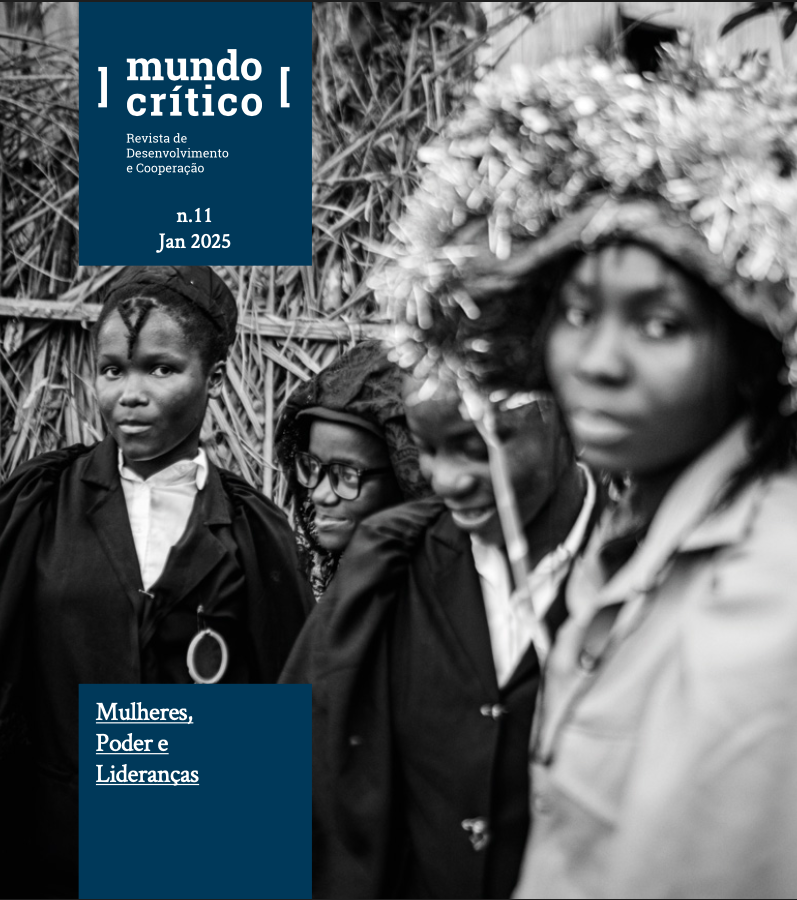
Mundo Crítico # 11: Mulheres, Poder e Lideranças
Abstract:
While it is widely recognised that equitable participation in political life is essential to development processes, data from across the globe unfortunately show that women remain underrepresented at all levels of decision-making, and gender parity in political life is still far from being achieved.
Women’s relationship with power and their possibilities of accessing leadership positions are marked by a constant negotiation between the private and public spheres, regardless of their context of action.
This issue of Mundo Crítico offers a critical and diverse reading—both geographically and historically—on the ways in which relationships between women, power, and different forms of leadership are articulated. The aim is to foster a more nuanced understanding of the mechanisms and values underpinning the functioning of societies.
In the Imperfect Conversation, historians Ana Paula Tavares and Patrícia Godinho Gomes discuss the everyday challenges faced by women in African countries, focusing on the concept of generation and the importance of female participation in the process of building today’s independent nations.
Other contributions reflect on the global difficulties women face in accessing power, and how their political participation also takes shape in more informal contexts—spaces where they create conditions for their own survival.
The photo essay For a New Tchiloli by Dário Pequeno Paraíso shows how tradition can be reinvented and renewed, presenting portraits of young women from São Tomé and Príncipe who reinterpret one of the archipelago’s most iconic cultural expressions through a female lens.
Cite this Journal:
ACEP & CEsA (2025). “Mulheres, Poder e Lideranças”. ISEG/CEsA – Centro de Estudos sobre África e Desenvolvimento. Revista Mundo Crítico nº 11 (Jan 2025). ISSN 2184-1926
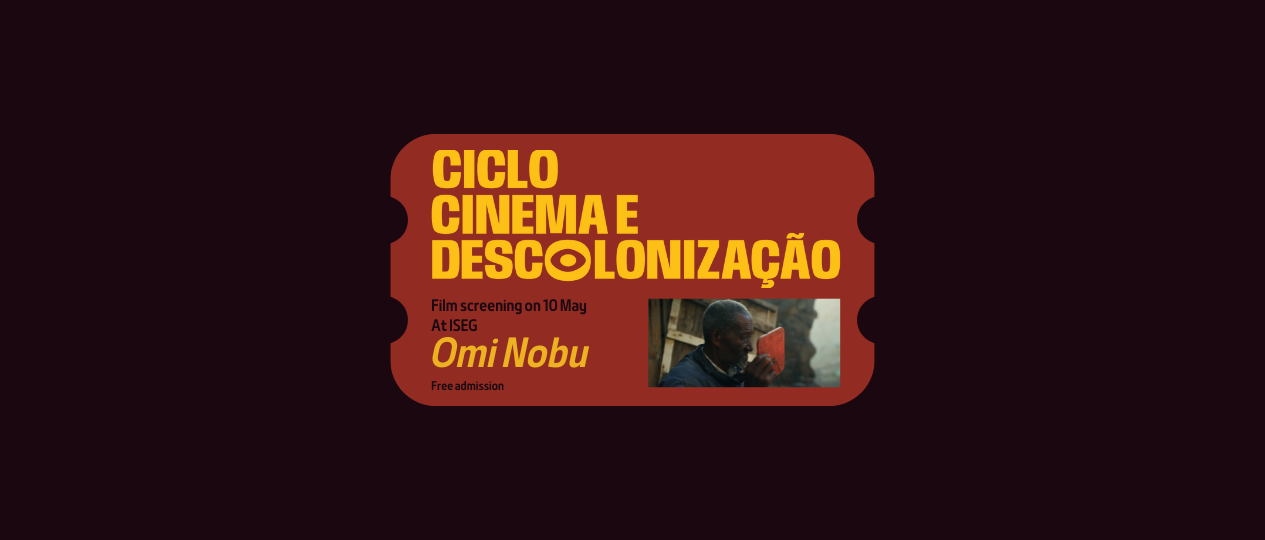
May session of the Cinema and Decolonisation Cycle to screen the documentary ‘Omi Nobu’ (‘The New Man’) at ISEG with free admission
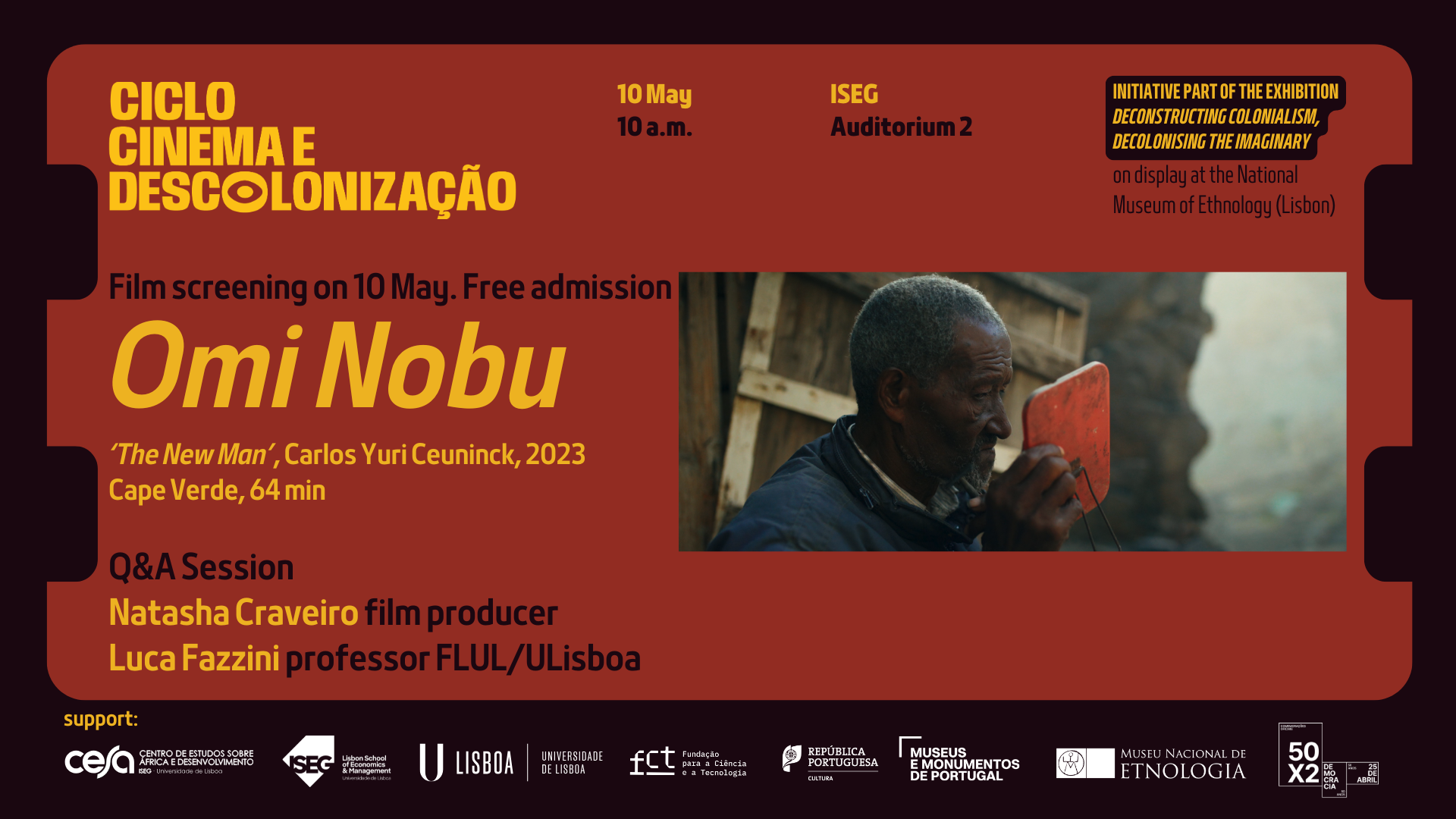
The 2024/2025 season of the Cinema and Decolonisation Cycle has been running since November 2024, hosting cineclub-style sessions to explore the legacies and memories of decolonisation. The next session, scheduled for 10 May, will feature a screening of the documentary Omi Nobu (‘The New Man’, Carlos Yuri Ceuninck, 2023, Cape Verde, 64 min), which was selected for FESPACO 2023 in Ouagadougou, where it won the most prestigious award in the documentary competition, the Golden Standard.
The film will be shown at 10:00 a.m. in the Auditorium 2 of the ISEG (Rua do Quelhas 6, Quelhas Building, 2nd Floor), with free admission. Following the film screening, a Q&A session will take place with the participation of Natasha Craveiro, sociologist, film director, and producer of Omi Nobu, and Luca Fazzini, professor at the Faculdade de Letras da Universidade de Lisboa.
Synopsis – Omi Nobu (The New Man) (Carlos Yuri Ceuninck, 2023, Cape Verde, 64 min)
Omi Nobu explores Man’s intimate relationship with Time; the contrast between the frozen time of an abandoned village and that of man confronts us with our own mortal condition. Quirino’s story is also a confrontation between tradition and modernity, between Man’s attachment to the Earth and his relationship with Nature. The story takes place on the island of Sao Nicolau in Cabo Verde, in Ribeira Funda, a small village located at the bottom of a deep valley surrounded by high mountains and a rough ocean. Its inhabitants have experienced such a series of disastrous events that frightening superstitions have led them to flee the village to escape the forces of evil. Everyone left the village to settle in the nearby Estância de Brás. All except one. One man remained: Quirino.
For over thirty years, 77-year-old Quirino has been the sole inhabitant of Ribeira Funda, the ghost village. He has survived for decades by fishing and growing vegetables. He spends his days contemplating the ocean and the majestic mountains that surround his home. His only company is a rooster, a few sparrows and a battery-powered portable radio, which hums with news from the rest of the world. But in the twilight of his life, Quirino, faced with an uncertain future and the harassing weight of isolation, illness and old age, resolves to leave the only place he has ever known. Omi Nobu takes us on a journey through the days and nights of the past, present and future of a village, a land and a man, and, in fine, meditates on our ontological relationship with the finitude of time and space.
Credits
Director: Carlos Yuri Ceuninck
Producers: Natasha Craveiro and Aurélien Bodinaux
Co-Producers: Paulo de Carvalho / Gudula Meinzolt / Alyaa Musa
Written by Carlos Yuri Ceuninck and César Schofield
Director of Photography: Arilson Almeida
Head of Sound: David Medina
Editor: Antoine Donnet
Original Soundtrack: Henrique Silva
Foley Sound: Elias Vervecken
Sound Editor: Virginie Messiaen
Sound Design: Nuno Miranda
Sound Mixing: Renaud Guillaumin
Color Grading: Veerle Zeelmaekers
Country of Production: Cabo Verde / Belgium / Germany / Sudan
Production: Korikaxoru Films / Neon Rouge Production / Autentika Films / Black Balance Films
2023 / Format 2.39 / Duration 64′
Awards
[2023] Prémio L’Étalon d’Or de Melhor Documentário de Longa-Metragem, FESPACO – Festival Panafricano de Cinema e Televisão de Ouagadougou, Burkina Faso
[2024] Menção Honrosa na categoria de Melhor Documentário de Média-Metragem, Hot Docs Canadian International Documentary Festival
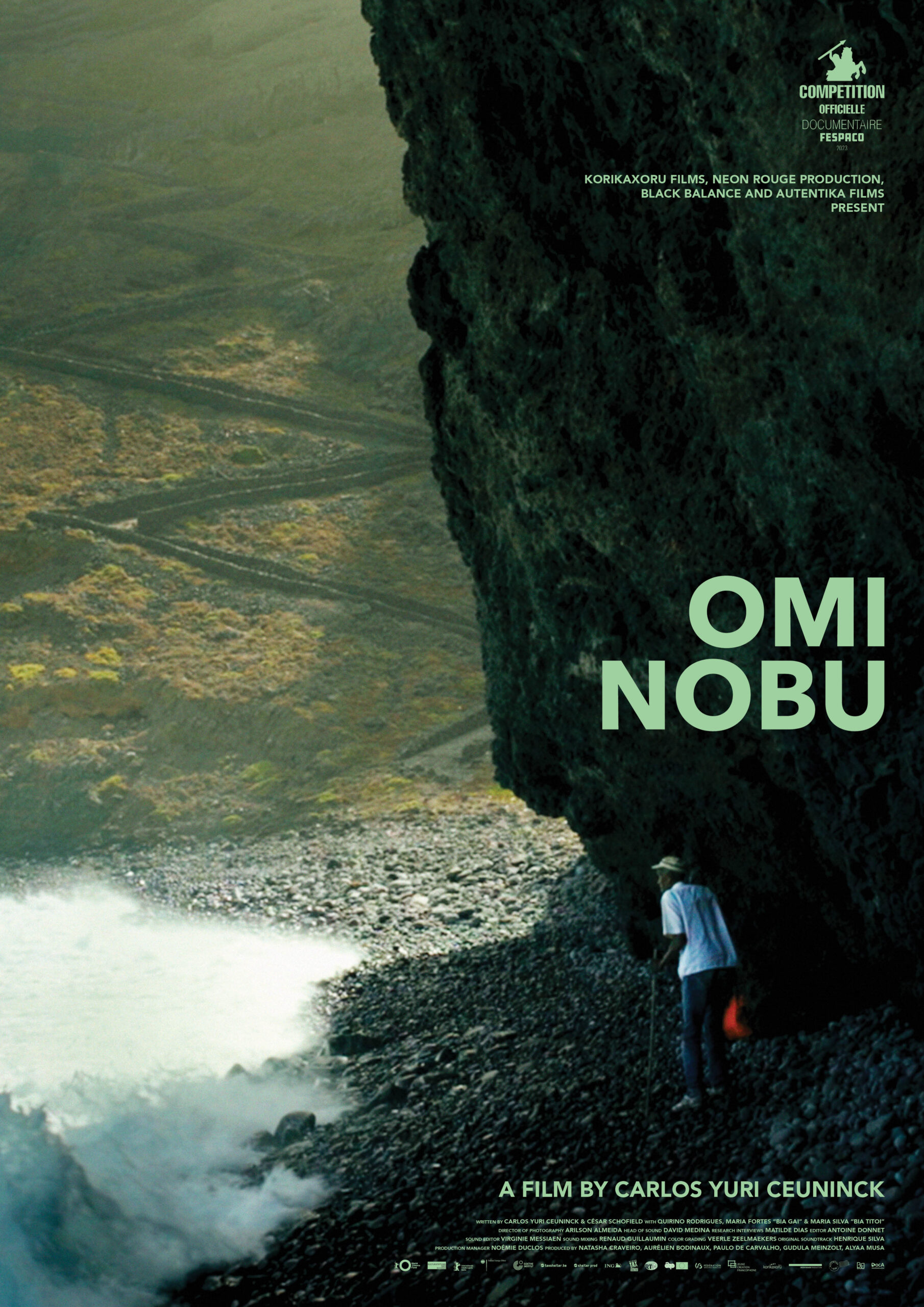
Get to know the director:

Carlos Yuri Ceuninck was born in 1976 in Santo Antão, Cape Verde. He studied Art History and Foreign Languages in Belgium, Anthropology in the United States, and Film in Cuba, specialising in documentary production. He has directed several short documentaries, including Listen and Sea, Without Taste, Touch or Smell (2005), and To Beef or Not to Beef and That is the Question on the Isle of Mu (2004). His first feature-length documentary, The Master’s Plan, was selected for the official competition at the Africa International Film Festival (AFRIFF 2021) in Nigeria and at STLOUIS’S DOCS 2021 in Senegal. His second feature-length documentary, Omi Nobu (also known as The New Man), was selected for FESPACO 2023 in Ouagadougou, where it won the most prestigious award in the documentary competition, the Golden Standard.
About the Cinema and Decolonisation Cycle
The sessions of the Cinema and Decolonisation Cycle will continue until June 2025, with screenings taking place in Auditorium 2 at ISEG (with the exception of the 5 April, which will be held at the National Museum of Ethnology). This initiative runs parallel to the exhibition Deconstructing Colonialism, Decolonising the Imagination, on display at the National Museum of Ethnology until 2 November.
Check out the programme below:
Decolonisation must be understood as an ongoing process, one that needs to be embraced and integrated into social, political, cultural, and personal dynamics. The project aims to create an open, dynamic space for sharing memories, narratives, dialogues, and reflections. It is coordinated by researcher Jessica Falconi (CEsA/ISEG/ULisboa) and curated by researcher and filmmaker Isabel Noronha (CEsA/ISEG/ULisboa) and filmmaker Camilo de Sousa.
Coordination: Jessica Falconi (CEsA/ISEG/ULisboa)
Curation: Isabel Noronha (CEsA/ISEG/ULisboa) and Camilo de Sousa
Scientific Consulting: Isabel Castro Henriques (CEsA/ISEG/ULisboa), Joana Pereira Leite (CEsA/ISEG/ULisboa), and Ana Mafalda Leite (CEsA/ISEG/ULisboa)
Collaboration: Luca Fazzini and João Moreira Silva
Support: CEsA/ISEG/ULisboa
Read more:
Omi Nobu, The New Man – FESPACO website
Omi Nobu, The New Man – Autentika Films website
Ciclo Cycle of Cinema and Decolonization | Screening of the film “The New Man”
Omi Nobu – Trailer on Vimeo
Programme for the 2024/2025 season of the Cinema and Decolonisation Cycle, in parallel with the exhibition ‘Deconstructing Colonialism, Decolonizing the Imagination’
Author: CEsA Communication Team (comunicacao@cesa.iseg.ulisboa.pt)
Image: Reproduction/Kintop

Development Studies Workshops 2025 | Conflict and Development
The Development Studies Seminars are an initiative that, since 1991, promotes research carried out in the areas of study of the Masters in Development and International Cooperation (MCDI) of ISEG and the PhD Programme in Development Studies of the University of Lisbon
Development Studies Workshops 2025
Topic: Conflict and Development
Date: 24 April de 2025 (Thursday)
Time: 2 p.m.
Venue: Novo Banco Room, Quelhas Building – ISEG (Ed. Quelhas, 4th Floor, Rua do Quelhas 6, 1200-781, Lisboa, Portugal)
Presentation #1: The Aid Security Nexus in Times of Polycrisis: Slashing foreign aid to boost militarism and defense spending (speaker: Marcos Farias Ferreira, CEsA and ISCSP, Portugal)
Presentation #2: Reclaiming Agency: Navigating situated dilemmas and building resilience in post-conflict development contexts (speaker: Asif Dawar, CEsA e National Defence University, Pakistan)
Presentation #3: Moving Beyond Humanitarian Handouts: A study of the Internally Displaced Persons’ (IDPs) farmers’ beans market, Auta Balefi, Nasarawa state, Nigeria (speaker: Cosmas Ba-Ana-Itenebe, CEsA)
Presentation #4: The Implications of the Conflict in Cabo Delgado Province for the Sustainable Development of Pemba City (Mozambique) (speaker: Sílvia Amaral, CEsA)
Presentation #5: Violence and (Under)Development: The Colombian case (speaker: Fabián Garzon-Cuervo, CEsA)
Presentation #6: Winning hearts and minds through dialogue: Experimental evidence from Mozambique’s Islamist insurgency (speaker: Henrique Pita Barros, CEsA)
Free admission, in-person event
About the speakers
 Marcos Farias Ferreira holds a Habilitation (Título de Agregado) in International Relations Methodology and a PhD in Social Sciences from the University of Lisbon – School of Social and Political Sciences (ISCSP). He is an Assistant Professor at the same institution. His research focuses on the field of Social Sciences, particularly Political Science. His main areas of academic work include: foreign policy, global security, Russia, the post-Soviet space, Eurasia, international relations methodology, the audiovisual turn, documentary, and Latin America.
Marcos Farias Ferreira holds a Habilitation (Título de Agregado) in International Relations Methodology and a PhD in Social Sciences from the University of Lisbon – School of Social and Political Sciences (ISCSP). He is an Assistant Professor at the same institution. His research focuses on the field of Social Sciences, particularly Political Science. His main areas of academic work include: foreign policy, global security, Russia, the post-Soviet space, Eurasia, international relations methodology, the audiovisual turn, documentary, and Latin America.
 Asif Dawar is an Assistant Professor in the Department of Peace and Conflict Studies at the National Defence University in Pakistan. He holds a PhD in Development Studies from the University of Lisbon. His research focuses on the complex nexus between security and development in South Asia and the Middle East.
Asif Dawar is an Assistant Professor in the Department of Peace and Conflict Studies at the National Defence University in Pakistan. He holds a PhD in Development Studies from the University of Lisbon. His research focuses on the complex nexus between security and development in South Asia and the Middle East.
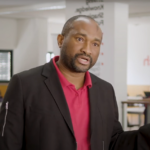
Cosmas Ba-Ana-Itenebe is a PhD candidate in Development Studies at ISEG – Lisbon School of Economics and Management, University of Lisbon, and a researcher at CEsA – Centre for African and Development Studies. His doctoral research explores the structural barriers and coping strategies of internally displaced persons affected by the Boko Haram insurgency in Nigeria.

Sílvia Amaral is a PhD candidate in Development Studies at ISEG – Lisbon School of Economics and Management, University of Lisbon, and a researcher at CEsA – Centre for African and Development Studies.
 Fabián Garzon-Cuervo holds a PhD in Development Studies from ISEG – Lisbon School of Economics and Management, University of Lisbon. He is an economist from the National University of Colombia and teaches undergraduate courses in Principles of Economics, Economic History, International Economic Policy, and Economic Development.
Fabián Garzon-Cuervo holds a PhD in Development Studies from ISEG – Lisbon School of Economics and Management, University of Lisbon. He is an economist from the National University of Colombia and teaches undergraduate courses in Principles of Economics, Economic History, International Economic Policy, and Economic Development.

Henrique Pita Barros is an Assistant Professor in the Department of Economics at ISEG – Lisbon School of Economics and Management, University of Lisbon. He holds a PhD in Economics from Brown University. His research investigates how disruption caused by migration, forced displacement, and conflict affects human behaviour.
Download the full programme below
Read more:
Author: CEsA Communication (comunicacao@cesa.iseg.ulisboa.pt)
Images: CEsA/Reproduction
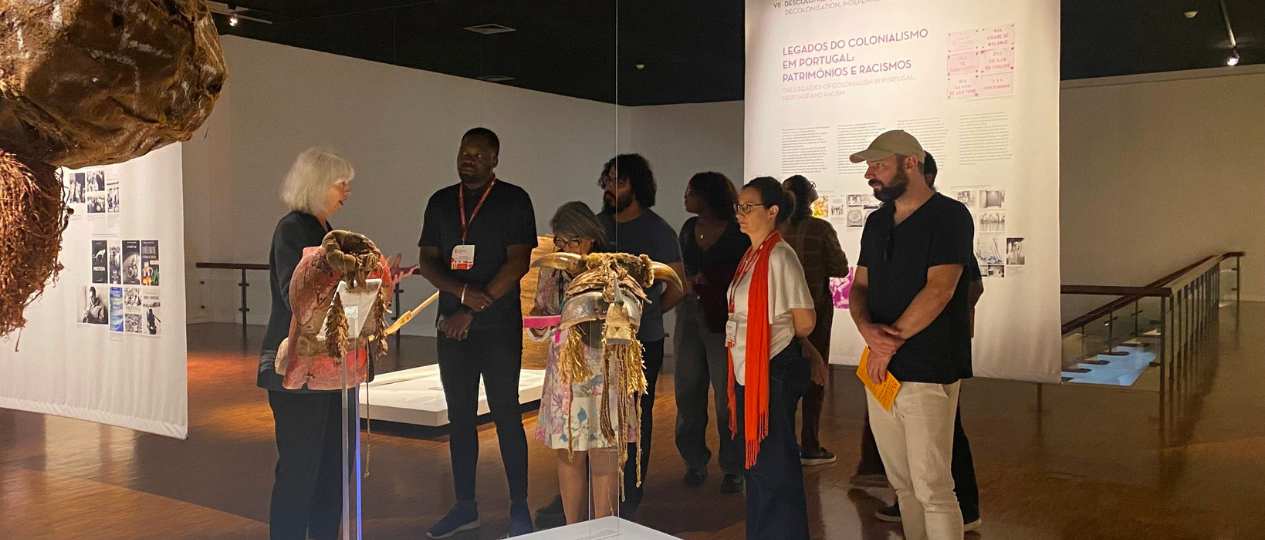
Guided Tours of the Exhibition Deconstructing Colonialism, Decolonising the Imaginary
The National Museum of Ethnology in Lisbon is organising guided tours of the exhibition Deconstructing Colonialism, Decolonising the Imaginary. Portuguese Colonialism in Africa: Myths and Realities, in collaboration with the Executive Committee.
The tours take place on select Sundays each month, always at 11:30 AM, and require prior registration via email: se.mnetnologia@museusemonumentos.pt. The schedule of guided tours is available on the Museum’s website.
Author: CEsA Communication Team (comunicacao@cesa.iseg.ulisboa.pt)
Image: Reproduction/CEsA
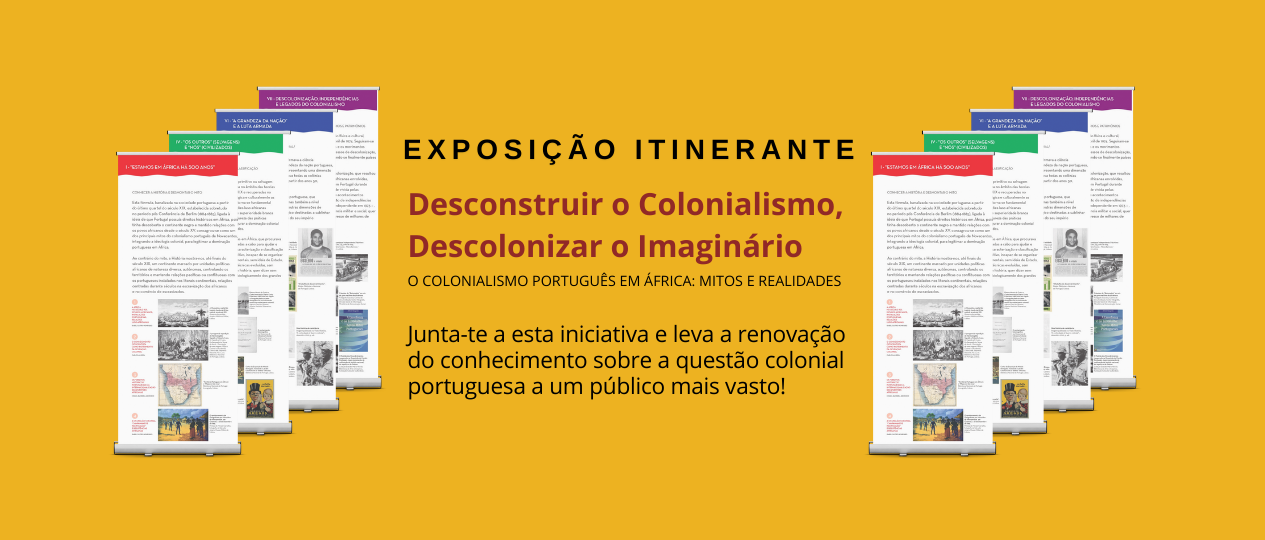
Partner with the travelling exhibition ‘Deconstructing Colonialism, Decolonising the Imaginary’ to bring this debate to new audiences
The exhibition ‘Deconstructing Colonialism, Decolonising the Imaginary. Portuguese Colonialism in Africa: Myths and Realities’ is open to the public until 2 November 2025 in the largest temporary exhibition hall of the National Museum of Ethnology (Lisbon). It invites visitors to engage in a profound reflection and deconstruction of the myths surrounding Portuguese colonialism in Africa during the 19th and 20th centuries, aiming to renew knowledge on the colonial question.
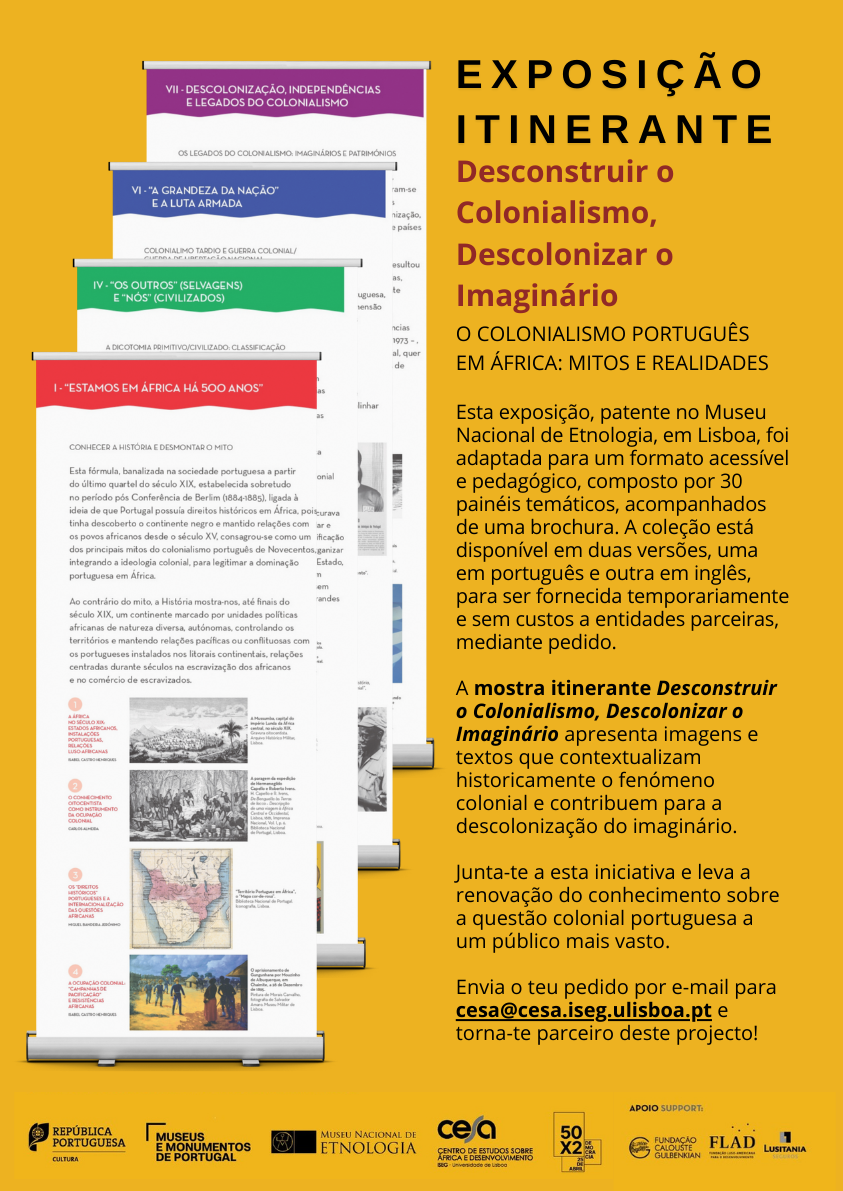
The exhibition ‘Deconstructing Colonialism, Decolonising the Imaginary. Portuguese Colonialism in Africa: Myths and Realities’, on display at the National Museum of Ethnology in Lisbon until 2 November 2025, has been adapted into an accessible and educational format, consisting of 30 thematic panels accompanied by a brochure.
The travelling exhibition Deconstructing Colonialism, Decolonising the Imaginary presents images and texts that provide historical context on the colonial phenomenon and contribute to the decolonisation of the imaginary, fostering a renewal of knowledge on the Portuguese colonial question.
The collection is available in two versions, one in Portuguese and the other in English, and can be temporarily loaned free of charge to partner institutions upon request via email at cesa@cesa.iseg.ulisboa.pt.
Join this initiative and become a partner in this project!
The project was conceived and coordinated by CEsA researcher and historian Isabel Castro Henriques to commemorate the 50th anniversary of the 25th of April, emphasising the importance of understanding the past to build a more inclusive future. It is co-organised by CEsA and the National Museum of Ethnology, with the support of the 50 Years of the 25th of April Commemorative Commission.
Read more:
Author: CEsA Communication Team (comunicacao@cesa.iseg.ulisboa.pt)
Image: Reproduction/CEsA

#DemocracyinAction! CEsA joins a European consortium in a €3 million Horizon Europe project to investigate political expression and participation through grassroots culture and the arts
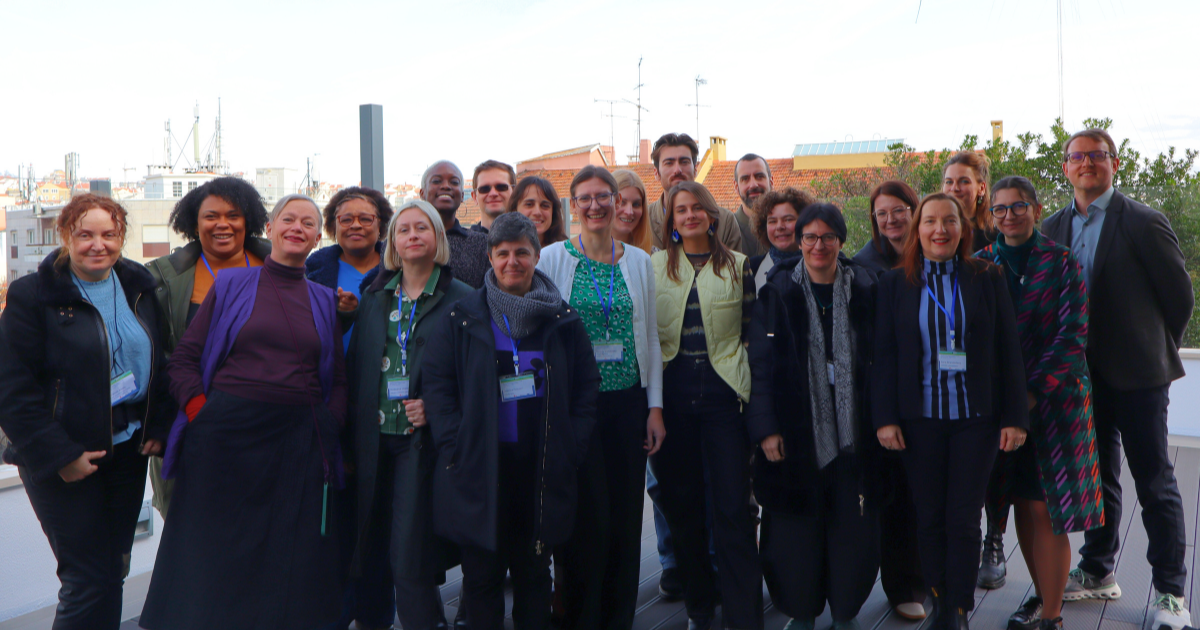
The CEsA – Centre for African and Development Studies (ISEG RESEARCH/ISEG – University of Lisbon), under the coordination of Dr. Iolanda Évora and Dr. Jessica Falconi, hosted a group of over 20 European researchers on 12–14 February 2025 for the Kick-Off Meeting, marking the beginning of the Portuguese centre’s collaboration in the international project #DemocracyinAction: Grassroots Culture, Arts and Cultural Spaces for Political Participation and Expression Online and Offline in a Resilient Europe.
The project is led by Dr. Sara Brandellero and Dr. Kamila Krakowska Rodrigues from Leiden University, Netherlands, and is funded by Horizon Europe with a budget of €3 million, under the Work Programme on Culture, Creativity and Inclusive Society.
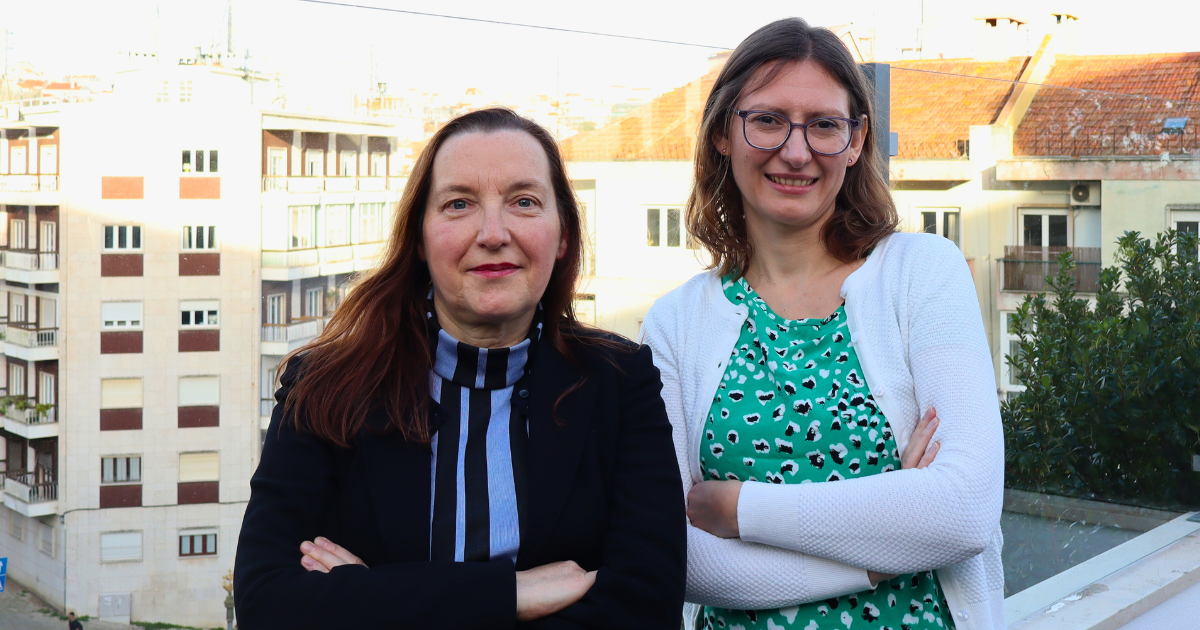
#DemocracyinAction aims to study grassroots cultural and artistic organisations in physical spaces, as well as their presence on social media and in the metaverse. At a time when democracy in Europe faces unprecedented challenges, this research seeks to understand the critical potential of these initiatives in promoting democracy by identifying solutions to enhance meaningful political expression and civic participation in four key areas of social transformation:
- Nightivism: exploring urban nightlife culture as a form of political engagement;
- Women’s Rights Mobilisation;
- Racial and Ethnic Civic Participation through Cultural Expression;
- Youth Activism and Civic Education.
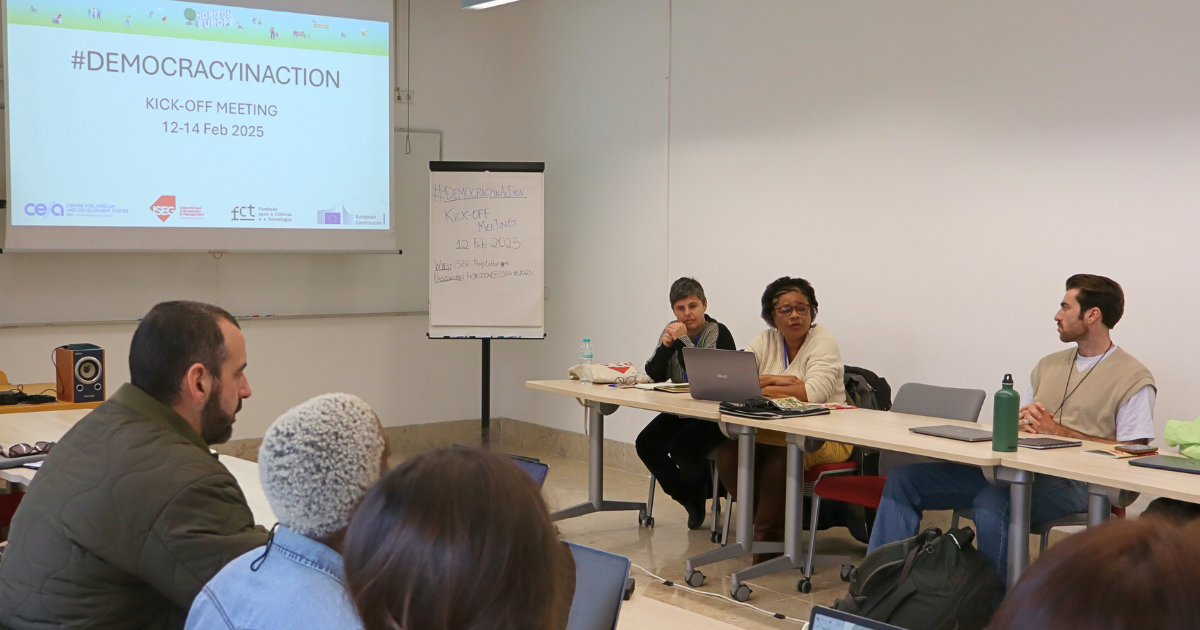
CEsA (Portugal) & CSIC (Spain) Work Package: Race, Ethnicity and Civic Participation
The Iberian Peninsula has been chosen as a paradigmatic case of cultural productions and manifestations led by communities that, despite facing racialisation and ethnic discrimination, have significantly reshaped national cultural landscapes and contributing to democratic processes.
Within this context, the CEsA team will lead the Work Package on Race, Ethnicity and Civic Participation, focusing on the cultural and artistic productions and the spaces created by Afro-diasporic communities, identified by their ethnic-racial belonging. As a case study, the research will explore the experiences of the Afro-diaspora, alongside the cultural productions of the Romani community in Portugal and the Moroccan-origin community in Spain.
The research will be developed in collaboration with local organisations such as Associação Passa Sabi and AfroLink. Passa Sabi is dedicated to empowering Afro-diasporic and Romani youth in multicultural and economically vulnerable neighbourhoods. AfroLink is a digital platform promoting Black entrepreneurship, particularly among women.
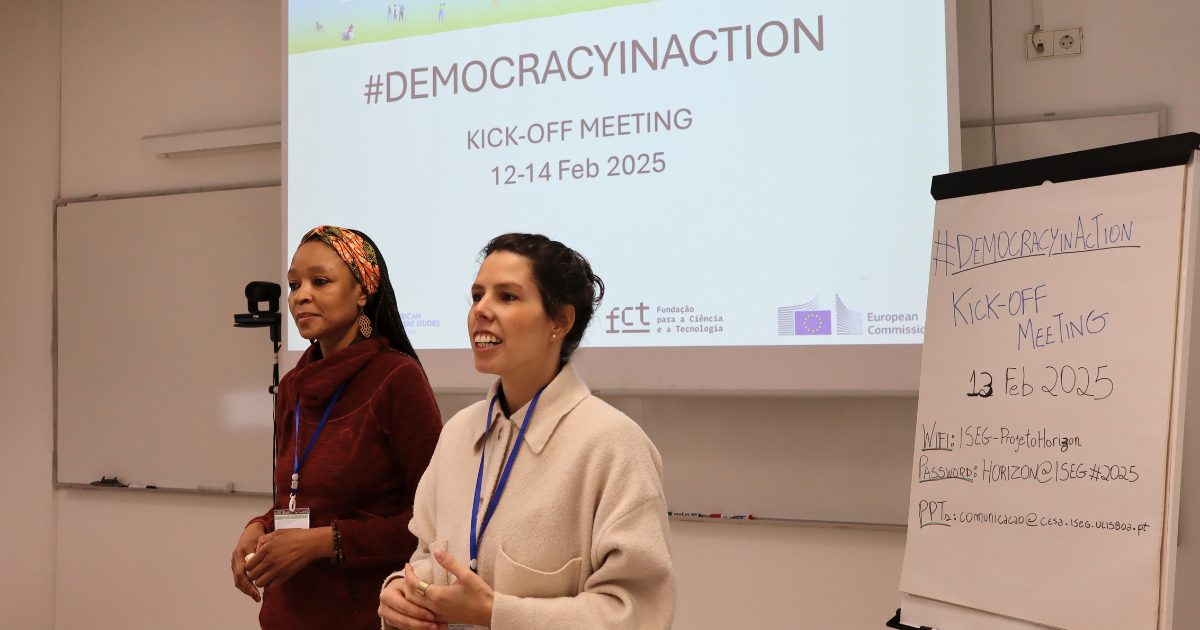
Innovation and Impact
Collaboration with community centres, theatres, exhibition halls, and artists, brings tested creative tools to mobilize people into civic participation and mitigate polarization. Working with digital designers and developers, #DemocracyinAction tests the unknown potential of virtual immersive spaces, including novel trends of virtual nightclubs, to deliver cutting-edge research and policy recommendations for a democratic and safe use and design of social media and metaverse environments.
About the Consortium
The consortium is composed of nine partners based in six European countries:
- Leiden University (Netherlands) – Coordinator;
- Santagata Foundation for the Economy of Culture (Italy);
- Jagiellonian University (Poland);
- Centre for African and Development Studies (CEsA) (Portugal);
- DE/MO Foundation (Netherlands) – Promoting democracy and culture among youth;
- National Research Council CSIC (Spain);
- VibeLab (Netherlands) – Urban nightlife research and advocacy;
- Hochschule Magdeburg-Stendal (Germany);
- Institute of Public Affairs (Poland) – Think-tank.
The project will also engage stakeholders from all EU regions, as well as from the Americas, Africa, the Middle East, and Asia, in both democratic and non-democratic contexts.
For more information, follow updates on the official CEsA website, LinkedIn, Facebook, and CEsA Agenda.
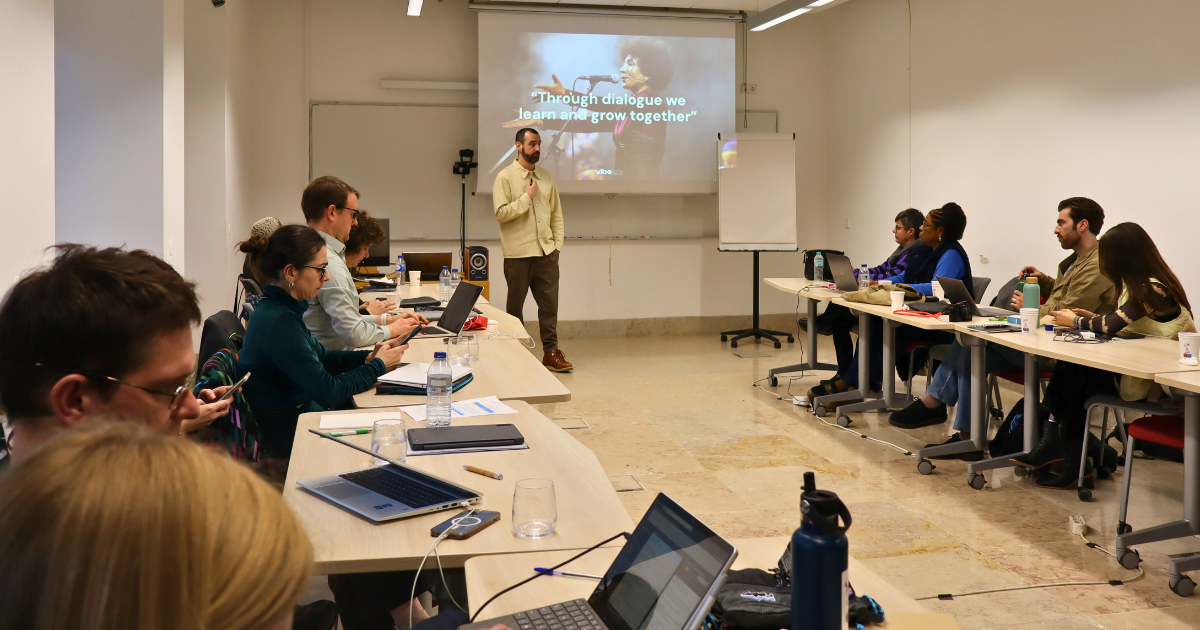
Read more:
Author: CEsA Communication (comunicacao@cesa.iseg.ulisboa.pt)
Images: CEsA/Reproduction
